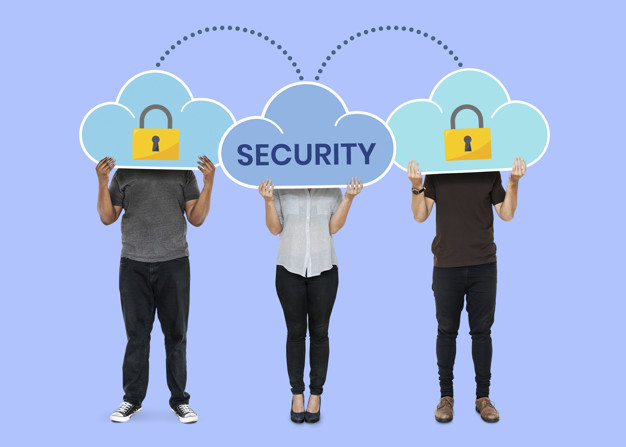Contents
5 ways to be more secure in the cloud
Cloud-based solutions are increasingly in demand around the world right now. In today’s digital environment, almost every business you can think of is using cloud services, and more than ever before, those businesses have a ton of sensitive data in the cloud. This brings in a host of new security risks.
According to a report by ISC2 (https://www.isc2.org/resource-center/reports/2020-cloud-security-report), 93% of organizations are extremely concerned about cloud security and 1 in 4 organizations had a cloud security incident in the past 12 months. Although cloud providers adhere to IaaS security and compliance to ensure security and uptime, it doesn’t mean that a company is safe from security holes in the cloud. Without cloud security, you are not just risking the data you use but also the integrity of your business. Moreover, threats evolve over time and it is not as simple as learning which vulnerabilities and threats are waiting at any particular moment in time. Here are a few ways in which you can protect your data and be more secure in the cloud.
Identity and access management
The traditional username and password combination is not sufficient in today’s world to protect your business data from cyber threats. All companies must have an Identity and Access Management system (IAM) to control access to information in the cloud. IAM in IT is about defining and managing the roles and access privileges of individual users and the circumstances in which the users are granted or denied those privileges. An IAM combines both multi-factor authentication and user access policies thus, giving you control of your applications and data. This should be the foundation of the cloud cybersecurity program.
Micro-segmentation
Micro-segmentation is a security technique that involves dividing your cloud deployment into distinct security segments down to the individual workload level. By dividing the cloud deployments into isolated segments, you can monitor and control each segment efficiently. Thus, it enables you to deploy flexible security policies by making it as granular as possible. Since security policies are applied to separate workloads, you are basically strengthening your company’s resistance to attack and minimizing any damage caused by a cyberattack.
Data encryption
Businesses transmit sensitive data every day to and from a cloud provider’s platform, often storing it within the cloud provider’s infrastructure. This makes your sensitive data vulnerable. Data encryption is one of the strongest security tools an organization can use to protect their data assets even if the data falls into the wrong hands. Data encryption offers an extra layer of logical isolation and also serves as a double-check for access control strategies. By encoding your data when it’s at rest and in transit, you are ensuring that the data is near impossible to decipher without a decryption key that only you have the access to.
Reduce the complexity
One of the important steps in addressing cybersecurity in a cloud-dominated environment is reducing the complexity. Many organizations today have a multi-cloud or hybrid cloud environment. Having multiple clouds, each with its own properties and functionalities can result in a highly complex cloud infrastructure that is vulnerable to a number of security risks. So, organizations should focus on reducing this complexity and minimizing the number of cloud providers to further reduce complexity.
Train your employees
As with any cybersecurity initiative, training and educating your users and employees about security is vital. Cloud technology has been here for quite some time now, but it might still be relatively a new concept for many organizations that are dealing with digital transformation and cloud adoption. So, training and written guides for all the cloud procedures need to be a priority. Thus, establishing a culture for security with basic cloud knowledge is essential for creating awareness of best practices in the cloud. In addition to this, an organization should also create a comprehensive off-boarding process to protect against departing employees.
Cloud security is a shared responsibility between you and your cloud service provider. Experienced IT professionals like Intone follow the industry best practices in selecting, installing, and provisioning and managing cloud services, eventually designing a comprehensive cloud computing strategy with the best security measures that help the clients to get secure in the cloud.

